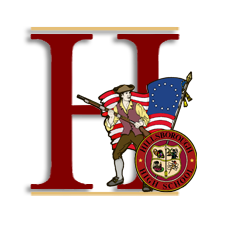Andrew Martins, Managing Editor
A donation of 100 reusable water bottles from a local teachers union sparked a debate among members of the Hillsborough Township Board of Education earlier this week, as the district continues to take measures to remediate lead levels in some water fixtures.
Weeks after district officials announced that some water fountains and faucets were still showing high levels of lead after remediation efforts, the school board voted during its Sept. 25 meeting to accept a donation of reusable water bottles from the Hillsborough Education Association.
The bottles, which would be made available to four classrooms at Sunnymead Elementary School that did not have easy access to potable water, feature an NJEA logo that calls for pride in the public school system. The donation was offered during the previous board meeting.
For some school board members, like Brett Cooper, that logo was tantamount to advertising, could result in future legal trouble and as a result, meant that accepting the donation was not allowed.
“I think this opens the Pandora’s box that if McDonald’s wants to send in water bottles and we say no because it’s marketing, we’ve already set precedent here if we accept this,” he said. “Baby steps lead to big steps.”
Since school started, students in affected areas have been allowed to bring reusable water bottles for use throughout the day.
“It is a nice donation and it’s somewhat needed, but we want to make it clear that there are water bottles available in the rooms…it’s not an issue that some of our kids are starving with thirst,” Cooper said. “My issue is that it does have what could be considered advertising on it.”
Board member Thomas Kinst agreed in part with Cooper, saying the donation posed a potential issue for the district.
According to Superintendent Dr. Jorden Schiff, the district’s attorney advised against accepting the donation, though it was not necessarily wrong to do so and could warrant policy changes in the future.
Board member Judith Haas questioned her colleagues’ concerns by pointing out existing marketing on water bottles and other items in the district’s schools.
“Right now, we have no problem with water bottles that say Nestle or Poland Spring,” Haas said. “That’s a direct advertisement of a company and nobody says anything about that when they’re in the classrooms.”
When Cooper said those companies pay to have their products in the schools, members of the HEA wondered whether their donation was causing a problem because of a monetary issue.
“Next time something like this comes up, do we need to pay? Does there need to be a dollar attached to a donation? We had absolutely no intent in this beyond serving the needs of our children,” HEA President Henry Goodhue said.
Caitlin Sonier, a first grade teacher at Sunnymead who works in one of the four affected classrooms, said she has witnessed how the water bottle issue has impacted her classroom, since some of her students come from homes that can’t regularly afford to buy bottled water on a regular basis.
“I have students in my classroom who are getting breakfast served to them because they cannot afford to have it at home,” Sonier said. “Drinking water should not be a concern in 2017 in this district.”
Sunnymead has one of the highest number of students in the district who are on free or reduced lunch. Goodhue said the donation was always meant to be for students coming from less fortunate homes.
“I find it ironic that we’re having an argument about a water bottle that demonstrates our pride in public schooling next to two coolers selling energy drinks,” he said. “I’m sure we can all agree that research has proven (those drinks) are one, addictive, and two, are dangerous to young children – yet we have them in a fifth and sixth grade school.”
With no votes coming from Jennifer Haley, Cooper and Kinst, the school board ultimately voted to accept the donation with a 4-3 count. Gillette did not vote in the matter.
In related news, Schiff said the district is still working to remediate lead levels in some of the district’s water fixtures.
Since the last meeting, the superintendent said the district was “in the process now of receiving information from the manufacturers” regarding which filters would finally address the issue. Though he said all fixtures have been remediated, some are still seeing elevated levels.
“We did receive a report (on Monday) of a recommended filter, however that filter is too large at this point to fit underneath (existing fixtures),” Schiff said. “It may take a little bit longer than what we first anticipated to remediate that.”

